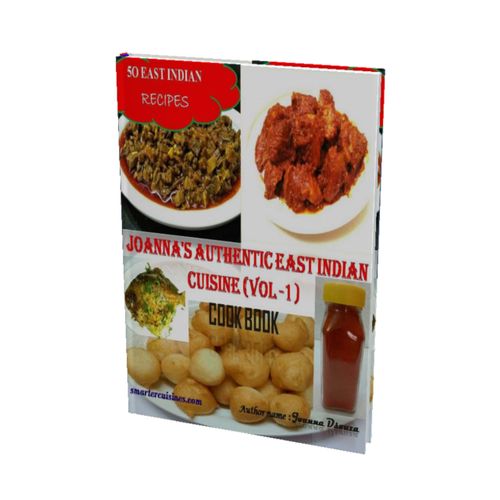Most parents are confused while taking school admission for their children. They are in a dilemma as to which board would be right for their children. In this article, we talk about Different School Boards In India. There are primarily 4 Indian boards namely CBSE, ICSE, IB and the State Boards.
Let us look at some of the important features of each of different boards, which can help us make the right decision for our children.
Different School Boards In India
A) CBSE
CBSE (Central Board of Secondary Education) is the most popular and widely accepted board in India and across many countries in the world. This board emphasizes mainly on Science and Maths. Most of these schools are approved by the Central Government of India.
Some of the key features of the CBSE board are:
- A total number of schools associated with CBSE are more than 14,000. Other than India, there are more than 20 countries which have schools associated with CBSE.
- Wide acceptance of the board results of CBSE examinations.
- Major Entrance exams like IIT, AIPMT, NSEB etc., are based on the CBSE Syllabus, due to its present day relevance.
- A major focus is on Maths and Science and other application based subjects.
- Books, teaching material, tutors and other things are easily available due to its wide popularity.
- They have CCE (Continuous and Comprehensive Evaluation system) from 6thstd to 10thstd, which grades students according to their academic and extracurricular activities throughout the year.
- They have a centralized system for transferring students across any of the CBSE Schools and so it is widely accepted by parents having transferable jobs.
Some of the disadvantages are:
- Subjects like Art and Literature do not have many options.
- Colleges under the state board have more reserved seats for state board students than other boards.
- The fees may be higher than other boards, especially state boards
[content-egg module=Amazon template=grid]
ICSE BOARD
ICSE is associated with the Council of Indian School Certificate Examination (CISCE). It was formed to adapt to the University of Cambridge examinations system, in India. It conducts 3 examinations listed below:
ICSE (Indian Certificate of Secondary Education) for Class 10th
CVE (Certificate for Vocational Education) for Class 12th
ISC (Indian School Certificate) for class 12th
Some of the key features of the ICSE board are:
- It gives focus on all subjects such as languages, science, maths, arts etc.
- More options for students to select different subjects.
- It also has a wide coverage (approximately more than 1000 schools) in India and other countries like Singapore, UAE etc.
- More than 20 Indian languages and 12 foreign languages are offered as language subjects.
- It focuses on the all-round development and the practical knowledge enhancement of students.
- Most of the foreign university admission process includes the TOEFL (Test of English Language) exam as Mandatory. These students find it easier because of the equal language focus.
Some of the disadvantages are:
- The curriculum is very vast and comprehensive.
- Students wanting to go in for science and maths specialization would like to be more focused on those subjects only, which is more prevalent in CBSE.
- Fees are higher as compared to other boards.
- Colleges under the state board have more reserved seats for state board students than other boards.
International Baccalaureate (IB)
International Baccalaureate is an educational foundation formed in 1968. It has over 3000 schools in more than 140 countries. Around 130 schools in India have been associated with this board. It is most prevalent in cities where high-end education is widely accepted. It has a very innovative way of learning and teaching.
Some of the key features of IB are:
- Innovative Curriculum with a very different teaching method.
- The focus is on the all-round development of students and not only on academic performance.
- The curriculum is based on application and experimentation.
- It is widely accepted in most countries all over the world. Many foreign universities recognize this board.
- Infrastructure in these schools is much better, as they have to maintain the same according to international standards.
- Many parents who are NRI’s or move to different countries for jobs will find this option the best for them.
- They have three educational programs namely :
PYP (Primary Year program) from KG to class 5
MYP (Middle Year Program) from class 6 to class 10
DP or Diploma Program for class 11th and 12th
Some of the disadvantages are listed below:
- Study material and tutors are not easily available.
- Schools found only in metropolitan cities.
- Fees are very high.
State Board
State boards are associated with their local state governments, for e.g. in Maharashtra, we have SSC (10th board exams), HSC (12th board exams).

Some of the key features are listed below:
- Widely accepted by all local students.
- The curriculum is not very vast or exhaustive and so preferred by many students.
- Study material and tutors are easily available.
- Fees are the lowest amongst all the boards.
- Seats are reserved in the state recognized colleges and universities.
Some of the disadvantages are listed below:
- The curriculum and quality of teaching entirely depend on the state government.
- The curriculum may not be up to date or relevant to the current times.
- Lack of basic educational infrastructure in schools.
IGCSE (International General Certificate of Secondary Education)
This is a rigorously specialized English language curriculum, which is offered to students preparing for IB- CIE – A Level.
Approximately 200 schools are associated with this program.
Some of the key features are listed below:
- Cambridge Primary (5yrs to 11yrs).
- Cambridge Secondary 1 & Secondary 2 (14yrs to 16yrs). It gives 2 options, Cambridge IGCSE and Cambridge O level. Further, it also offers Cambridge Advanced for those who want to prepare for University and Higher Education.
- Also, it is recognized by many foreign universities.
- It emphasizes more on English and other technical subjects.
- Advanced Curriculum with a different variety of subjects to choose from.
Some of the disadvantages are listed below:
- Study material and tutors are not easily available.
- Schools are found only in metropolitan cities.
- The Fees are very high.
All the above information will help you to choose the right school and board for your children. Choosing the right school associated with the right board is an important aspect of every child’s educational journey.
Hope you enjoyed this article Different School Boards In India. Please read our earlier article Top study tips from a teacher.
Tags: CBSE, Different School Boards In India, IB, ICSE, IGCSE, SSC AND HSC



